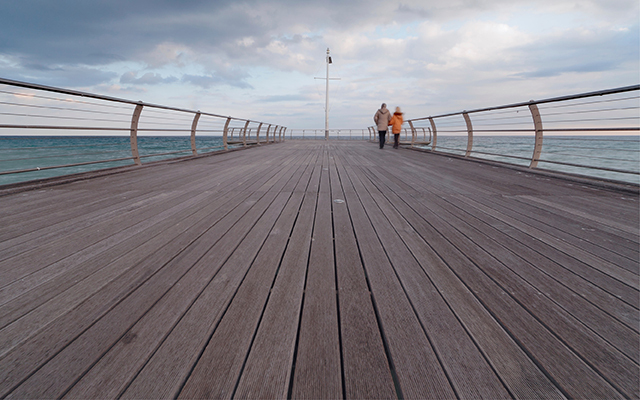My Lovely Wife and I have been hanging around together for the better part of 40 years now, so you might assume that we’ve always been fairly compatible in the areas that matter most: stuff like money, parenting, career, tolerance for chaos, and the like. You would be wrong.
The young woman who happened to sit next to me in an English literature class at the University of Minnesota in September 1976 had just returned from a summer stint at Oxford University. She was a proper Anglophile armed with a thermos of Earl Gray and strong opinions about things I hadn’t yet gotten around to considering. She played the cello in her spare time.
I was a working-class stiff and aspiring Marxist several months removed from a stint in the Air Force and fresh from a failed marriage, scrambling to keep up in the classroom when I wasn’t watching sports on TV and drinking more beer than was appropriate. To arrange our first date, I had to call from a phone booth because the phone in my apartment had been disconnected for lack of payment.
She cooked me dinner that night — beef stew. I had neglected to tell her I was a vegetarian.
It was, as they say, a match made in heaven.
I am still a bit rough around the edges, but rubbing elbows with MLW all these years has changed me in ways that I could never have imagined back then. And, perhaps even more surprising, I’ve had some effect on her. I’ve grown more bookish, less boorish and fatalistic over the years. She’s become more practical and accepting of conventional culture, less defensive when defending her strong opinions, and perfectly willing to enjoy a cold one under certain circumstances.
This is probably no surprise to other couples who have logged a few decades under the same roof, but there’s now some research to support the notion that people in long-standing relationships tend to have a significant influence on each other’s behavior — and their overall health and longevity.
In fact, recent research suggests that couples who have weathered the storms together for several decades actually experience biological changes over the years that make them more like their partners. “Aging is something that couples do together,” Shannon Mejia, a postdoctoral research fellow at the University of Michigan explained in a recent NPR report. “You’re in an environment together, and you’re appraising that environment together and making decisions together.” The process, she says, links couples physically as well as emotionally.
Mejia and her research team examined data from more than 1,500 married couples who had lived together less than 20 years and more than 50. They found “striking similarities between partners who have spent decades together, especially kidney function, total cholesterol levels, and the strength of their grips.”
Mejia’s study builds on research by Christianne Hoopman at the University of British Columbia, who found that longtime couples had similar difficulties with basic daily tasks such as grocery shopping, cooking, and remembering to take their medications. Her conclusion: Couples as they aged changed in sync with each other.
That applies to physical as well as emotional states. When one half of the couple cuts back on physical activity, the other half tends to follow suit. Similarly, when one slips into depression, it will depress the other. On the upside, if you tend to be optimistic, your better half will tend to be healthier.
MLW is an incurable optimist, so I should probably credit my good health to her tendency to look on the bright side. By the same token, when she told me about the NPR story the other day, she suggested that my kettlebell workouts could be increasing her bone density. I certainly hope so. It’s the least I can do given all she’s done for me.

This Post Has 0 Comments